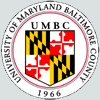| |||||||||||||||||||
Tips:  Range on the Protein: Protein ID Protein Position Domain Position: 
|
|---|
Weblogos are Copyright (c) 2002 Regents of the University of California
| DMDM_info@umbc.edu | 1000 Hilltop Circle, Baltimore, MD 21250 | Department of Biological Sciences | Phone: 410-455-2258 |




 TlpA-like family; composed of TlpA, ResA, DsbE and similar proteins. TlpA, ResA and DsbE are bacterial protein disulfide reductases with important roles in cytochrome maturation. They are membrane-anchored proteins with a soluble TRX domain containing a CXXC motif located in the periplasm. The TRX domains of this family contain an insert, approximately 25 residues in length, which correspond to an extra alpha helix and a beta strand when compared with TRX. TlpA catalyzes an essential reaction in the biogenesis of cytochrome aa3, while ResA and DsbE are essential proteins in cytochrome c maturation. Also included in this family are proteins containing a TlpA-like TRX domain with domain architectures similar to E. coli DipZ protein, and the N-terminal TRX domain of PilB protein from Neisseria which acts as a disulfide reductase that can recylce methionine sulfoxide reductases.
TlpA-like family; composed of TlpA, ResA, DsbE and similar proteins. TlpA, ResA and DsbE are bacterial protein disulfide reductases with important roles in cytochrome maturation. They are membrane-anchored proteins with a soluble TRX domain containing a CXXC motif located in the periplasm. The TRX domains of this family contain an insert, approximately 25 residues in length, which correspond to an extra alpha helix and a beta strand when compared with TRX. TlpA catalyzes an essential reaction in the biogenesis of cytochrome aa3, while ResA and DsbE are essential proteins in cytochrome c maturation. Also included in this family are proteins containing a TlpA-like TRX domain with domain architectures similar to E. coli DipZ protein, and the N-terminal TRX domain of PilB protein from Neisseria which acts as a disulfide reductase that can recylce methionine sulfoxide reductases. No pairwise interactions are available for this conserved domain.
No pairwise interactions are available for this conserved domain.










